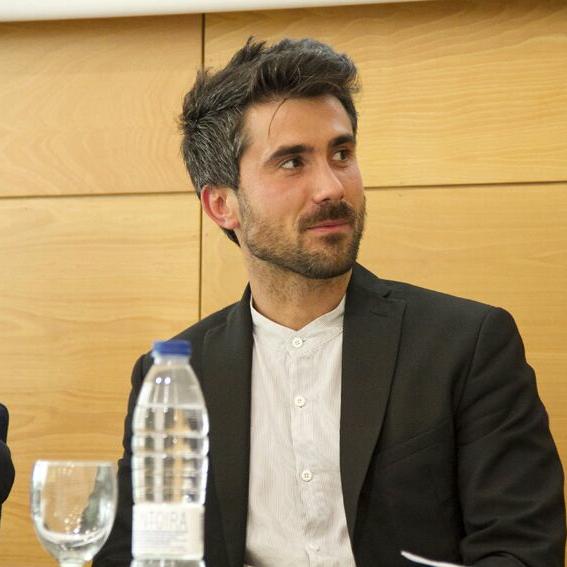Studying at the University of Verona
Here you can find information on the organisational aspects of the Programme, lecture timetables, learning activities and useful contact details for your time at the University, from enrolment to graduation.
Academic calendar
The academic calendar shows the deadlines and scheduled events that are relevant to students, teaching and technical-administrative staff of the University. Public holidays and University closures are also indicated. The academic year normally begins on 1 October each year and ends on 30 September of the following year.
Course calendar
The Academic Calendar sets out the degree programme lecture and exam timetables, as well as the relevant university closure dates..
| Period | From | To |
|---|---|---|
| 1° periodo lezioni (1A) | Sep 16, 2021 | Oct 30, 2021 |
| 1° periodo lezioni (1B) | Nov 5, 2021 | Dec 16, 2021 |
| 2° periodo lezioni (2A) | Feb 14, 2022 | Mar 26, 2022 |
| 2° periodo lezioni (2B) | Apr 4, 2022 | May 20, 2022 |
| Session | From | To |
|---|---|---|
| Prove parziali 9/12 CFU - Prove finali 6 CFU del periodo 1A | Nov 2, 2021 | Nov 4, 2021 |
| 1° appello invernale - dicembre 2021 | Dec 17, 2021 | Dec 23, 2021 |
| Sessione invernale - 2 appelli | Jan 8, 2022 | Feb 12, 2022 |
| Prove parziali 9/12 CFU - Prove finali 6 CFU del periodo 2A | Mar 28, 2022 | Apr 2, 2022 |
| Sessione estiva - 3 appelli | May 23, 2022 | Jul 27, 2022 |
| Sessione autunnale - 1 appello | Aug 25, 2022 | Sep 17, 2022 |
| Period | From | To |
|---|---|---|
| Festa di Tutti i Santi | Nov 1, 2021 | Nov 1, 2021 |
| Festa dell'Immacolata Concezione | Dec 8, 2021 | Dec 8, 2021 |
| Vacanze di Natale | Dec 24, 2021 | Jan 6, 2022 |
| Vacanze Pasquali | Apr 15, 2022 | Apr 19, 2022 |
| Festa della Liberazione | Apr 25, 2022 | Apr 25, 2022 |
| FESTA DEL LAVORO | May 1, 2022 | May 1, 2022 |
| Santo Patrono | May 21, 2022 | May 21, 2022 |
| Festa della Repubblica | Jun 2, 2022 | Jun 2, 2022 |
Exam calendar
Exam dates and rounds are managed by the relevant Law Teaching and Student Services Unit.
To view all the exam sessions available, please use the Exam dashboard on ESSE3.
If you forgot your login details or have problems logging in, please contact the relevant IT HelpDesk, or check the login details recovery web page.
Should you have any doubts or questions, please check the Enrollment FAQs
Academic staff
 francesca.bazzani@univr.it
francesca.bazzani@univr.it
 bernardo.calabrese@univr.it
bernardo.calabrese@univr.it
 roberto.flor@univr.it
roberto.flor@univr.it
 stefano.gatti@univr.it
stefano.gatti@univr.it
 mariangela.massella@univr.it
mariangela.massella@univr.it
 gustavoadolfo.nobilemattei@univr.it
gustavoadolfo.nobilemattei@univr.it
 cinzia.peraro@univr.it
cinzia.peraro@univr.it
 diego.tilola@univr.it
diego.tilola@univr.it
Study Plan
The Study Plan includes all modules, teaching and learning activities that each student will need to undertake during their time at the University.
Please select your Study Plan based on your enrollment year.
1° Year
| Modules | Credits | TAF | SSD |
|---|
2° Year activated in the A.Y. 2022/2023
| Modules | Credits | TAF | SSD |
|---|
1 module between the following1 module between the following| Modules | Credits | TAF | SSD |
|---|
| Modules | Credits | TAF | SSD |
|---|
1 module between the following1 module between the following| Modules | Credits | TAF | SSD |
|---|
Legend | Type of training activity (TTA)
TAF (Type of Educational Activity) All courses and activities are classified into different types of educational activities, indicated by a letter.
Restructuring and Insolvency Law (2022/2023)
Teaching code
4S008954
Academic staff
Coordinator
Credits
6
Also offered in courses:
- Diritto delle crisi d'impresa of the course Combined Bachelor's + Master's degree in Law
Language
Italian
Scientific Disciplinary Sector (SSD)
IUS/04 - BUSINESS LAW
Period
1° periodo lezioni (1B) dal Nov 4, 2022 al Dec 16, 2022.
Learning objectives
The course is included in the learning area on Risk Management. It aims to address, from both a substantive and procedural point of view, the regulation of business crisis and insolvency as reformed by the Business crisis and insolvency Code (Legislative Decree No. 14 of 12 January 2019), which replaces the Bankruptcy Law (R.D. No. 267 of 16 March 1942) and the Law on over-indebtedness (Law No. 3 of 27 January 2012).
In particular, the course will address the issues related to procedures of alert, assisted composition and crisis regulation, composition procedures, arrangement with creditors, judicial liquidation, and debt relief, both from the perspective of individual companies, and groups.
At the end of the course, the student will acquire the ability to formulate, autonomously and critically, complex opinions and argumentations on the main topics of the course.
Students will also acquire the ability to face and solve practical problems typical of the professional context in which they will operate, thus orienting their competence to the goal of contractual compliance and to the prevention of the judicial conflicts. Students will also be able to verify the practical and applicative consequences of the theoretical and regulatory framework and to set, in written and oral form (and also through group work, written exercises and the method of Problem Based Solving - PBS), the solution to concrete issues, using the appropriate and specific disciplinary vocabulary, adopting the correct lines of reasoning and argumentation, and formulating autonomous judgments. The teaching method used is functional to the continuous learning and updating of acquired knowledge.
Prerequisites and basic notions
Basic knowledge of commercial law and private law
Program
1. General principles on the correct organization of the company. 2. The business crisis. Concept and framework of the Code of the corporate crisis and insolvency. 3. The negotiated settlement of the crisis 4. The judicial liquidation 5. Notes on arrangement with creditors and restructuring agreements; and over-indebtedness procedures 6. Company law profiles of the crisis
Bibliography
Didactic methods
On-site and recorded lessons. During the lessons we will also organize group exercises organized according to the Problem Based Solving (PBS) method. At the end of the first part of the course (18 hours) there will be the presentation of the in-depth papers and the final discussion. The second part of the course focuses on the corporate law of the crisis; the matter will be prepared with the aid of a reference text (F. Pasquariello, Posthumous bankruptcy liquidations and other corporate law courses in insolvency, ESI, 2022),
Learning assessment procedures
For students who will follow the lessons, the assessment of learning will be based on two different elements: 1. Oral exam on the topics addressed during the course 2. Paper and presentation of the group work (max 3000 words). For students who will not attend the lessons, the verification of learning will take place through a single oral exam on the topics selected in the reference texts. Video recordings of lessons will be available, upon request, for authorized working students. Erasmus students will be able to take the exam with an oral presentation of a written paper in Italian on topics agreed with the teacher. The thesis will be discussed during the exam in Italian. The text to be studied for the exam by non-attended students is the following: G. D'Attorre, Manual of law of the crisis, Giappichelli, 2022 (2 ed.) limited to the following pages: - from p. 1 on p. 46 (referable to the first module, Prof. Caprara); - from p. 47 on p. 184 (referable to the second module, Prof. Pasquariello) - from p. 197 on p. 364 (referable to the first module, Prof. Caprara) - from p. 385 on p. 445 (referable to the second module, Prof. Pasquariello)
Evaluation criteria
The evaluation will take place through the following criteria: - the depth and breadth of the knowledge acquired; - the property of language; - analytical and argumentative ability; - the capacity for critical reflection. The final evaluation is expressed in 30ths.
Criteria for the composition of the final grade
For students who will attend the lessons and will carry out the scheduled tests, the final score, elaborated according to the criteria indicated above, will be divided as follows: - Oral exam on the topics covered during the course (50%) - Paper and presentation of group work ( max 3000 words) (50%) For students who will not attend the lessons, the score refers to the single oral exam.
Exam language
italiano
Type D and Type F activities
Le attività che consentono l’acquisizione dei crediti riservati alle attività formative a libera scelta dello studente (TAF D) sono le seguenti:
- Un insegnamento previsto nell’elenco delle attività formative (TAF D) allegato al piano didattico del corso di laurea in Diritto per le tecnologie e l’innovazione sostenibile;
- Un insegnamento attivato nei Corsi di studi afferenti al Collegio didattico;
- Un laboratorio didattico attivato nei Corsi di studi afferenti al Collegio didattico;
- Un laboratorio didattico attivato nei Corsi di studi afferenti al Dipartimento di Scienze Giuridiche;
- Un insegnamento previsto dall’Offerta Formativa di Ateneo, non impartito nell’ambito dei corsi di studi afferenti al Collegio didattico: il riconoscimento dei crediti acquisiti sarà subordinato alla preventiva presentazione di coerenti programmi formativi valutati dalla Commissione istruttoria per la didattica e approvati dal Collegio didattico.
- Attività formative organizzate dai singoli docenti del Collegio didattico o del Dipartimento di Scienze Giuridiche: previa approvazione del Collegio ad esse verrà attribuito, dopo un’apposita verifica, un credito per ogni 6 ore di frequenza obbligatoria;
- Attività formative che implicano la partecipazione a convegni o seminari organizzati sotto il “logo” del Dipartimento di Scienze Giuridiche o dell’Ateneo: devono essere preventivamente approvate dal Collegio didattico indicando un docente di riferimento del Collegio didattico ovvero del Dipartimento di Scienze Giuridiche. Un credito per ogni giornata di convegno o di seminario si acquisisce dopo apposita verifica che dimostri l’avvenuta fruizione culturale del tema del convegno o del seminario.
• Ulteriori competenze linguistiche (3 CFU);
• Stage;
• Un laboratorio didattico attivato nei Corsi di studi afferenti al Collegio didattico;
• Un laboratorio didattico attivato nei Corsi di studi afferenti al Dipartimento di Scienze Giuridiche.
Al link https://www.univr.it/it/i-nostri-servizi/segreterie-studenti/giurisprudenza#categdoc_7103 la modulistica per l'inserimento di attività non selezionabili in autonomia dallo studente in sede di compilazione del piano degli studi.
| years | Modules | TAF | Teacher |
|---|---|---|---|
| 1° | Legal English B2 | F |
Francesca Ragno
(Coordinator)
|
| years | Modules | TAF | Teacher |
|---|---|---|---|
| 1° | Partecipated justice and reforms. The settlement of conflicts with people and for people | D | Not yet assigned |
Career prospects
Module/Programme news
News for students
There you will find information, resources and services useful during your time at the University (Student’s exam record, your study plan on ESSE3, Distance Learning courses, university email account, office forms, administrative procedures, etc.). You can log into MyUnivr with your GIA login details: only in this way will you be able to receive notification of all the notices from your teachers and your secretariat via email and soon also via the Univr app.
Internships
Internships are aimed at enabling students to gain direct knowledge of the world of work and to acquire specific professional skills.
Internships are carried out under the responsibility of an individual lecturer, and can be carried out in professional firms, public administration bodies and companies recognised by the University of Verona.
Any CFU credits gained by doing internships will be recognised and recorded by the University in accordance with the relevant University regulations in force (Regolamento d’Ateneo per il riconoscimento dei crediti maturati negli stage universitari).
For further information on internships, please go to: https://www.univr.it/it/i-nostri-servizi/stage-e-tirocini.


 +39 045 802 8549
+39 045 802 8549




































